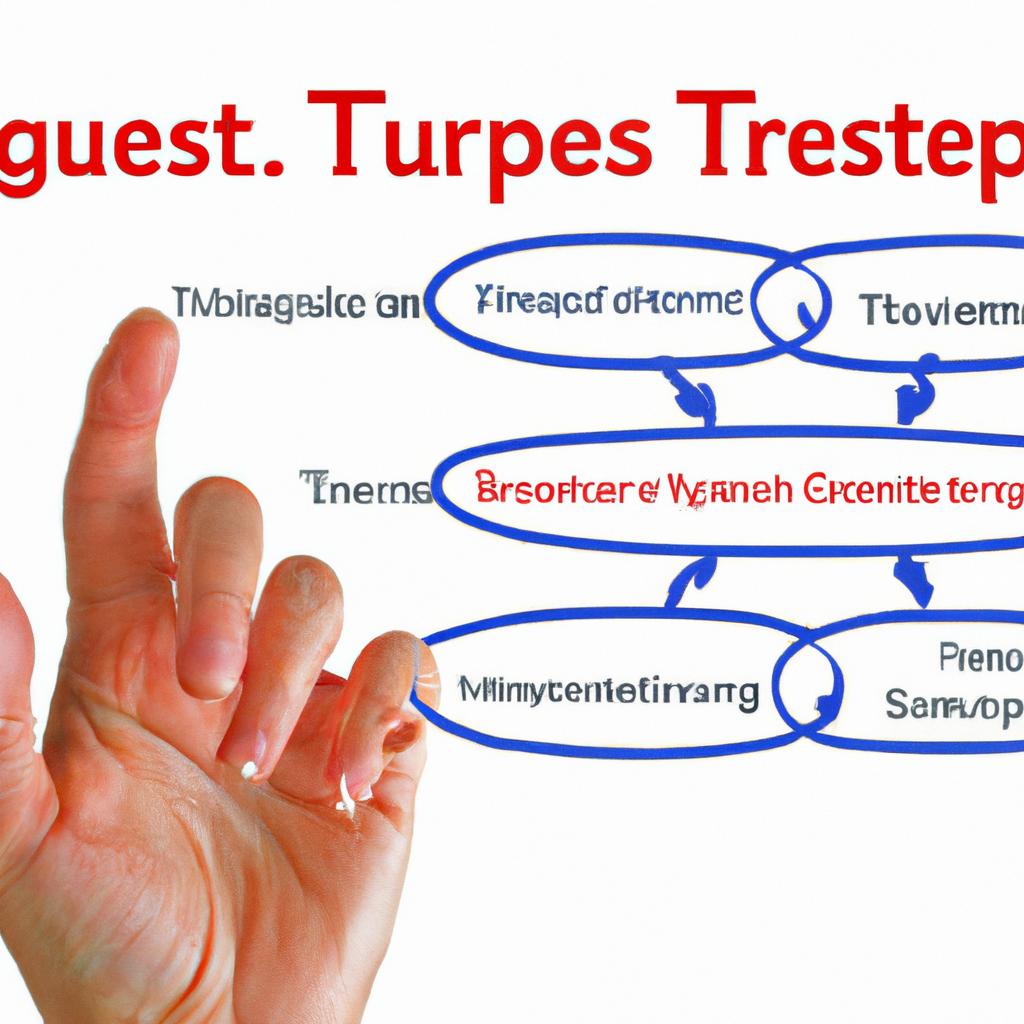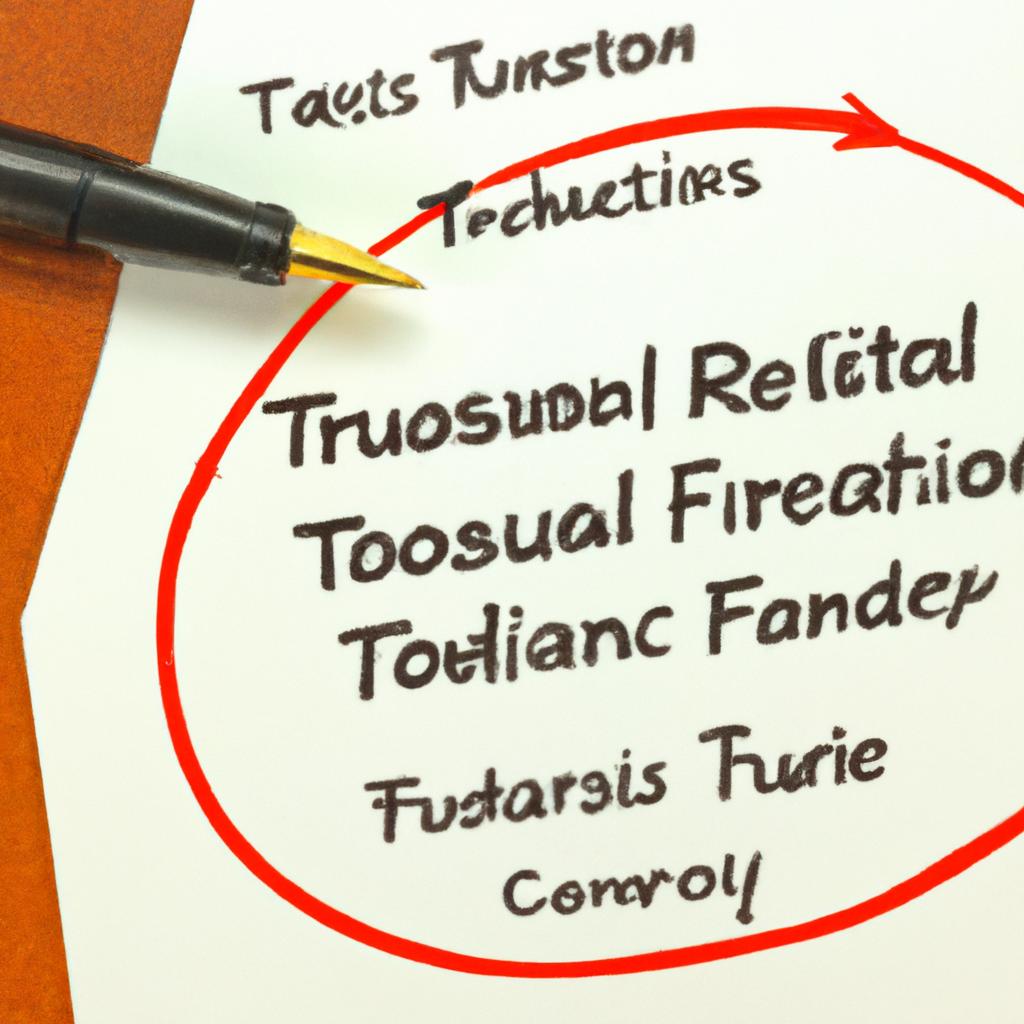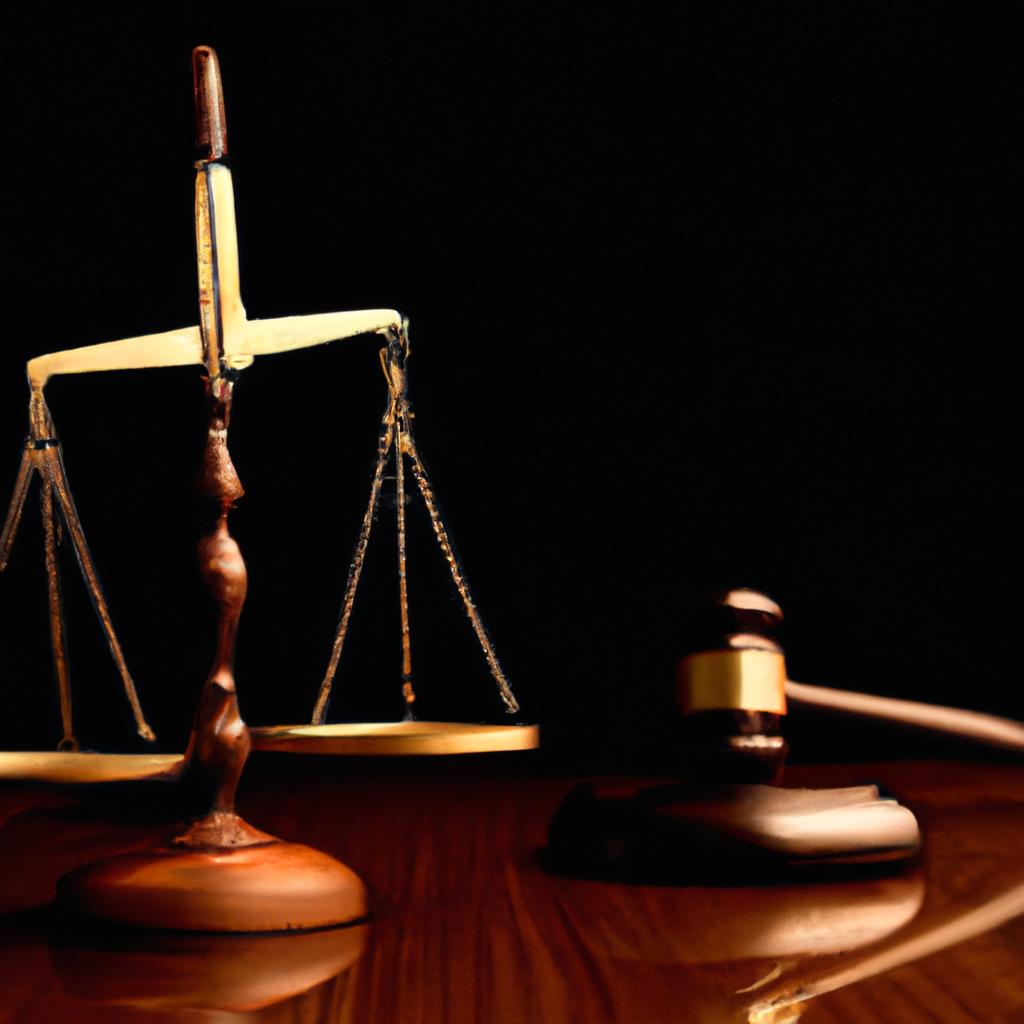In the intricate world of trusts, a fundamental aspect that often perplexes individuals is the control and management of assets. Who, indeed, holds the keys to the kingdom when it comes to the financial resources within a trust? As seasoned legal practitioners at Morgan Legal Group in New York City, we delve into the intricate nuances of trust administration to shed light on this essential question. Join us as we navigate the labyrinth of trust structures and explore the realities of financial control within these complex legal entities.
Understanding Trust Structures and Key Players
In a trust structure, the control of money and assets is entrusted to different key players who each play a crucial role in managing and executing the terms of the trust. Understanding the responsibilities and powers of these key players is essential for ensuring the proper administration and distribution of trust assets. Here are the key players involved in controlling the money in a trust:
Trustor/Settlor:
The trustor, also known as the settlor or grantor, is the individual who establishes the trust and transfers assets into it. The trustor outlines the terms and conditions of the trust in the trust instrument, directing how the trust assets should be managed and distributed. The trustor retains certain powers and control over the trust during their lifetime, but ultimately relinquishes control upon the trust’s creation.
Trustee:
The trustee is the person or entity responsible for managing the trust assets according to the trustor’s instructions. The trustee has a fiduciary duty to act in the best interests of the beneficiaries and administer the trust in accordance with the trust instrument. The trustee has the authority to invest trust assets, make distributions to beneficiaries, and oversee the day-to-day operations of the trust. Selecting a trustee who is trustworthy, competent, and reliable is essential for the successful administration of a trust.
[table class=”wp-table” colwidth=”50% 50%”]
[thead]
[tr]
[th]Key Player[/th]
[th]Role[/th]
[/tr]
[/thead]
[tbody]
[tr]
[td]Trustor/Settlor[/td]
[td]Establishes the trust and transfers assets into it, outlines the terms and conditions of the trust[/td]
[/tr]
[tr]
[td]Trustee[/td]
[td]Manages the trust assets, makes distributions to beneficiaries, and administers the trust according to the trust instrument[/td]
[/tr]
[/tbody]
[/table]
Analyzing the Role of Trustees in Managing Trust Funds
Trustees play a crucial role in managing trust funds, ensuring that the assets are properly safeguarded and distributed according to the terms of the trust agreement. The trustee is entrusted with the responsibility of managing the trust assets for the benefit of the beneficiaries, while also adhering to fiduciary duties and legal obligations.
**Key responsibilities of trustees in managing trust funds include:**
- Investing trust assets prudently
- Distributing income and principal according to trust terms
- Communicating with beneficiaries and providing regular accountings
- Protecting trust assets from creditors and legal liabilities

Exploring Beneficiary Rights and Protections in Trust Agreements
In a trust agreement, the control of the money ultimately lies with the trustee. The trustee is tasked with managing the trust assets and distributing them to the beneficiaries according to the terms of the trust. While beneficiaries have certain rights and protections in trust agreements, they do not have direct control over the funds in the trust.
Beneficiaries have the right to receive distributions from the trust as outlined in the trust agreement. Additionally, beneficiaries have the right to request information about the trust and its administration from the trustee. It is important for beneficiaries to understand their rights and protections in trust agreements to ensure that their interests are being properly safeguarded.

Ensuring Compliance with Legal and Fiduciary Responsibilities
In a trust, the trustee is the individual or entity that controls the money and assets held in the trust for the benefit of the beneficiaries. It is crucial for trustees to understand and uphold their legal and fiduciary responsibilities to ensure compliance with the trust agreement and relevant laws. Trustees must act in the best interests of the beneficiaries, manage the trust assets prudently, and avoid conflicts of interest.
One way to ensure compliance with legal and fiduciary responsibilities is to maintain accurate and detailed records of all trust transactions. This includes keeping track of income, expenses, distributions, and any other financial activities related to the trust. Additionally, trustees should regularly communicate with beneficiaries to keep them informed about the trust’s status and address any questions or concerns they may have. By fulfilling their duties diligently and transparently, trustees can uphold the integrity of the trust and protect the interests of all parties involved.
| Responsibility | Description |
|---|---|
| Managing assets prudently | Investing trust funds wisely and responsibly to maximize returns while minimizing risks. |
| Avoiding conflicts of interest | Acting impartially and avoiding any self-dealing or personal gain at the expense of the trust or beneficiaries. |
Q&A
Q: Who controls the money in trust?
A: The trustee is responsible for managing the money in trust.
Q: Can the beneficiary access the money in trust?
A: The beneficiary does not have direct access to the trust funds, as the trustee is the one who controls and distributes the money according to the terms of the trust.
Q: What is the role of the settlor in controlling the money in trust?
A: The settlor creates the trust and determines the terms under which the money is to be managed and distributed by the trustee. Once the trust is established, the settlor typically does not have control over the funds.
Q: How does the trustee make decisions about the money in trust?
A: The trustee must act in the best interests of the beneficiaries and follow the instructions outlined in the trust document when making decisions about managing and distributing the funds.
Q: What happens if the trustee mismanages the money in trust?
A: If the trustee fails to fulfill their duties or acts inappropriately, the beneficiaries or a court may take legal action to hold the trustee accountable and ensure that the trust funds are properly managed.
Final Thoughts
In conclusion, when it comes to who controls the money in trust, it ultimately depends on the specific terms outlined in the trust document. Whether it be the trustee, the beneficiary, or a combination of both, understanding the roles and responsibilities is crucial in ensuring the proper management and distribution of funds. Trusts are complex financial tools that require careful consideration and planning, but with the right guidance, they can be a powerful tool for achieving your long-term financial goals. Ultimately, the key is to work with a trusted professional who can help navigate the intricacies of trust administration and ensure that your wealth is managed in accordance with your wishes.
 WHO CONTROLS THE MONEY IN TRUST?
WHO CONTROLS THE MONEY IN TRUST?
Trusts are popular financial instruments used for the transfer and protection of assets. They are a legal arrangement where assets are given to a trustee to hold and manage for the benefit of one or more beneficiaries. Trusts can be set up for various purposes, such as estate planning, tax planning, charitable giving, and asset protection.
One question that often arises when discussing trusts is who controls the money in trust? The answer to this question may vary depending on the type of trust, the terms of the trust deed, and the roles of the parties involved. In this article, we will explore the different parties involved in a trust and their respective responsibilities when it comes to controlling the money in trust.
THE PARTIES INVOLVED IN TRUST
Before delving into who controls the money in trust, it is essential to understand the different parties involved in a trust and their roles. These parties are:
1. The Trustor/Settlor/Grantor: The trustor, also known as the settlor or grantor, is the person who creates the trust and transfers their assets into it.
2. The Trustee: The trustee is the person or institution responsible for managing the trust, holding the trust’s assets, and distributing income and/or principal to the beneficiaries according to the terms of the trust.
3. The Beneficiaries: The beneficiaries are the individuals or entities who will benefit from the assets held in the trust. They can be both current and future beneficiaries, depending on the terms of the trust.
Now, let us explore the roles of these parties and their involvement in controlling the money in trust.
THE ROLE OF THE TRUSTOR/SETTLOR
As the creator of the trust, the trustor has the power to determine the terms and conditions of the trust, including how the assets will be managed and distributed. In most cases, the trustor also retains the power to modify or revoke the trust during their lifetime, giving them significant control over the assets held in the trust.
In some cases, the trustor may appoint themselves as the trustee and retain complete control over the trust assets. However, this may not be a wise decision, as it can jeopardize the trust’s validity and place the trust assets at risk. It is always advisable to have an independent trustee, such as a bank or trust company, to manage the trust assets.
THE ROLE OF THE TRUSTEE
The trustee is the legal owner of the assets held in the trust and has a fiduciary duty to manage them for the beneficiaries’ benefit. This duty requires the trustee to act in the best interests of the beneficiaries and follow the terms of the trust.
The trustee’s powers and responsibilities are outlined in the trust deed, and in most cases, they have significant control over the trust’s assets. They are responsible for making investment decisions, managing the trust’s administration, and ensuring the proper distribution of income and/or principal to the beneficiaries.
In some cases, the trust deed may also give the trustee discretionary powers, where they have the authority to make decisions on how to manage and distribute the trust assets. These discretionary powers are usually used in trusts designed for asset protection or tax planning purposes.
THE ROLE OF THE BENEFICIARIES
The beneficiaries typically have no control over the trust’s assets, and their rights are limited to the terms and conditions outlined in the trust deed. In most cases, the trust deed will specify when and how the beneficiaries will receive the trust’s income and/or principal.
However, in some cases, the trust deed may give the beneficiaries certain rights and powers, such as the power to remove and appoint the trustee, veto certain decisions, or even the right to receive a specific amount of income or principal from the trust.
BENEFITS OF HAVING A TRUST IN PLACE
Setting up a trust has many benefits, both for the trustor and the beneficiaries. Some of these benefits include:
1. Asset protection: By transferring assets into a trust, they are no longer considered part of the trustor’s estate and are protected from creditors or legal disputes.
2. Avoiding probate: Trust assets do not have to go through the probate process, which can save both time and money for the beneficiaries.
3. Tax planning: Certain types of trusts, such as irrevocable trusts, can be used for tax planning purposes, reducing the tax burden on the trust assets.
4. Control over distribution to beneficiaries: A trust allows the trustor to control how and when the beneficiaries will receive the trust’s income and/or principal, ensuring that they are used for their intended purpose.
5. Ensuring privacy: Unlike wills, which are public records, trusts are private documents, allowing the trustor to keep their financial affairs confidential.
PRACTICAL TIPS FOR MANAGING THE MONEY IN TRUST
If you have set up a trust or are planning to do so, here are a few practical tips to help you manage the money in trust effectively:
1. Choose the right trustee: Select a trustee who is experienced, trustworthy, and has a good track record of managing trusts. It may be advisable to have a co-trustee or a successor trustee in case the primary trustee is unable or unwilling to fulfill their duties.
2. Understand the terms of the trust: As a trustor or beneficiary, it is essential to understand the terms of the trust, including the trustee’s powers and the beneficiaries’ rights. If you have any questions or concerns, consult with a trust attorney for clarification.
3. Communicate with the trustee: Keep open communication with the trustee regarding the trust’s assets and their management. This will enable the trustee to make better decisions and ensure that the trust’s objectives are being met.
FINAL THOUGHTS
In conclusion, the control of money in trust is dependent on the type of trust, the terms of the trust deed, and the roles of the parties involved. While the trustor has significant control over the trust’s assets during their lifetime, the trustee is responsible for managing them for the beneficiaries’ benefit. With proper planning and management, trusts can be an effective tool for protecting and distributing assets to future generations. Consult with a trust attorney to determine the best type of trust for your financial goals and needs.

